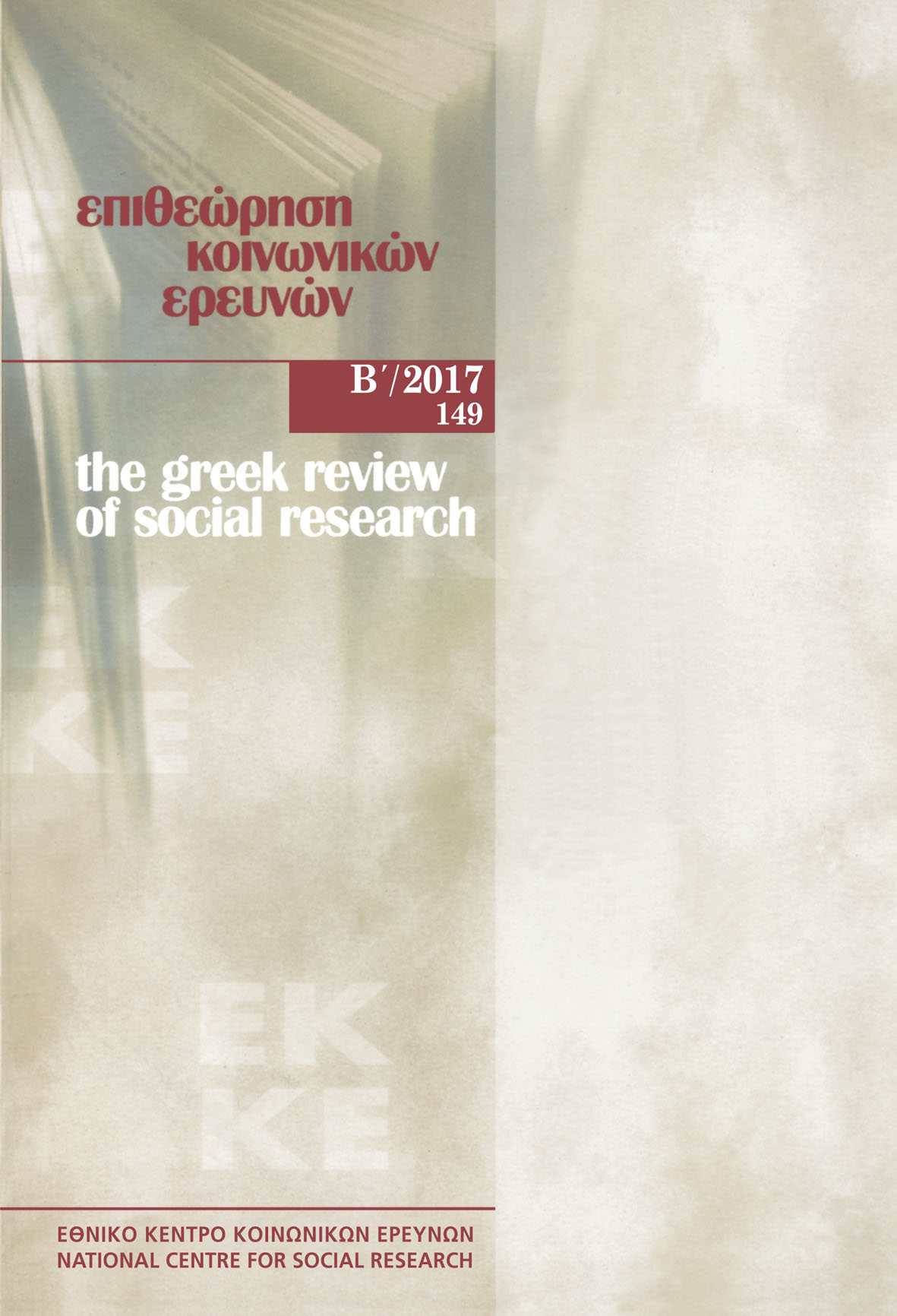Solidarity bridges: alternative food economies in urban Greece

Abstract
Set in the urban-rural continuum of Thessaloniki, this paper explores the grounded social activities of certain groups, committed to building a social economy of distributing food without intermediaries. In the light of new ethnographic data from grassroots responses to livelihoods’ hardship, I propose to expand reciprocity's conceptual boundaries, extended to include a local concept rampant in crisis-ridden Greece: solidarity. The solidarity economy can be seen as a conceptual and political bridge that symbolically as well as materially brings together communities of food production and consumption. The cosmology of the horio (village) is an unexpected urban activist metonym in the food distribution systems that have emerged amidst austerity measures in Greece.
Article Details
- How to Cite
-
Rakopoulos, T. (2018). Solidarity bridges: alternative food economies in urban Greece. The Greek Review of Social Research, 149, 121–136. https://doi.org/10.12681/grsr.15818
- Section
- Articles

This work is licensed under a Creative Commons Attribution-NonCommercial 4.0 International License.
Authors who publish with this journal agree to the following terms:
- Authors retain copyright and grant the journal right of first publication with the work simultaneously licensed under a Creative Commons Attribution Non-Commercial License that allows others to share the work with an acknowledgement of the work's authorship and initial publication in this journal.
- Authors are able to enter into separate, additional contractual arrangements for the non-exclusive distribution of the journal's published version of the work (e.g. post it to an institutional repository or publish it in a book), with an acknowledgement of its initial publication in this journal.
- Authors are permitted and encouraged to post their work online (preferably in institutional repositories or on their website) prior to and during the submission process, as it can lead to productive exchanges, as well as earlier and greater citation of published work (See The Effect of Open Access).


